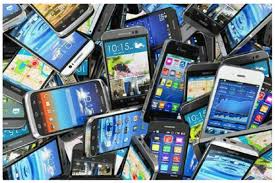A global study by US-based Sapien Labs has found that kids using a smartphone or tablet at an early age are more likely to have mental health issues as young adults, with women being more severely affected
Are you thinking about gifting a smartphone to your adolescent? You may want to read this report before making that decision. A study by US-based non-profit Sapien Labs has reportedly found that the later children get a smartphone or tablet, the better their mental health will likely be as adults.
The findings also revealed that women who get a smartphone at an early age are more adversely affected than their male counterparts.
How was the study conducted, what are the key findings and what does it mean? We explain.
How was it done?
The study titled ‘Age of First Smartphone and Mental Well-being Outcomes’ was published on Sunday (14 May). It examined data collected from 27,969 adults aged 18 to 24 years from more than 40 countries between January to April this year.
Around 4,000 of these adults were from India.
As many as 74 per cent of female participants, who received their first smartphone at the age of six, were found to have been facing mental health challenges as young adults with their scores falling within “distressed” or “struggling” MHQ range, as per Times of India (TOI).
Women who got their first smartphones at the age of 10, around 61 per cent have mental health issues as young adults. This declined further – 52 per cent – for those who received the device at 15 years of age.
When the age of first smartphone ownership was 18, around 46 per cent of women were found to have been experiencing mental health challenges.
In the case of men, around 42 per cent who acquired their first smartphone at the age of six were found to have “distressed” or “struggling” mental states. This reduced to 36 per cent for the men who got the device at age 18, reported TOI.
The study discovered that when children acquire smartphones at an older age, their “Social Self, an aggregate measure of various elements such as self-confidence and the ability to relate positively to others,” gets better.
“The results are consistent across regions, including South Asia, and thus apply to India as well. Problems with suicidal thoughts, feelings of aggression towards others, a sense of being detached from reality and hallucinations declined most steeply and significantly with older age of first smartphone ownership for females, and for males as well, but to a lesser degree,” the researchers said, as per HT.
“However, while for females it (the observed pattern) was highly significant across all regions, for males the trend was only directional but not significant in South Asia,” the study mentioned, according to Indian Express.
Moreover, the researchers noted that the relationship between mental well-being at ages 18-24 and the age of first smartphone ownership is significant even among participants with no traumatic or adverse childhood experience.
“Getting your phone early means more mental health problems as an adult, particularly suicidal thoughts, feelings of aggression towards others and sense of being detached from reality; altogether a poorer sense of ‘social self’, that is, how one views oneself and relates to others,” Sapien Labs’ founder Dr Tara Thiagarajan told TOI.
Why does the study matter?
According to Dr Thiagarajan, “These findings suggest that there are long-term improvements in mental well-being for each year of delay in getting a smartphone during childhood”.
“It’s important that we continue to study this relationship and work to develop effective policies and interventions that can support healthy mental development in the digital age to reverse the declining trends we have been tracking,” the neuroscientist was quoted as saying by Indian Express.
The study becomes more important for India where 83 per cent of children in the 10-14 age group use smartphones, more than the international average of 76 per cent, TOI reported citing last year’s McAfee’s Global Connected Family study.
Shailender Swaminathan, director, Sapien Labs Centre for the Human Brain and Mind, India, told HT in a statement: “This report makes a critical contribution in shaping our understanding of the role of early access to technology in influencing mental health outcomes for children and youth. The findings have significant implications for schools, parents, employers and others in India, home to over 200 million youth in the age group of 15-25 years”.
Credit : https://www.firstpost.com/explainers/smartphones-kids-ownership-age-mental-health-issues-adults-study-12611262.html




